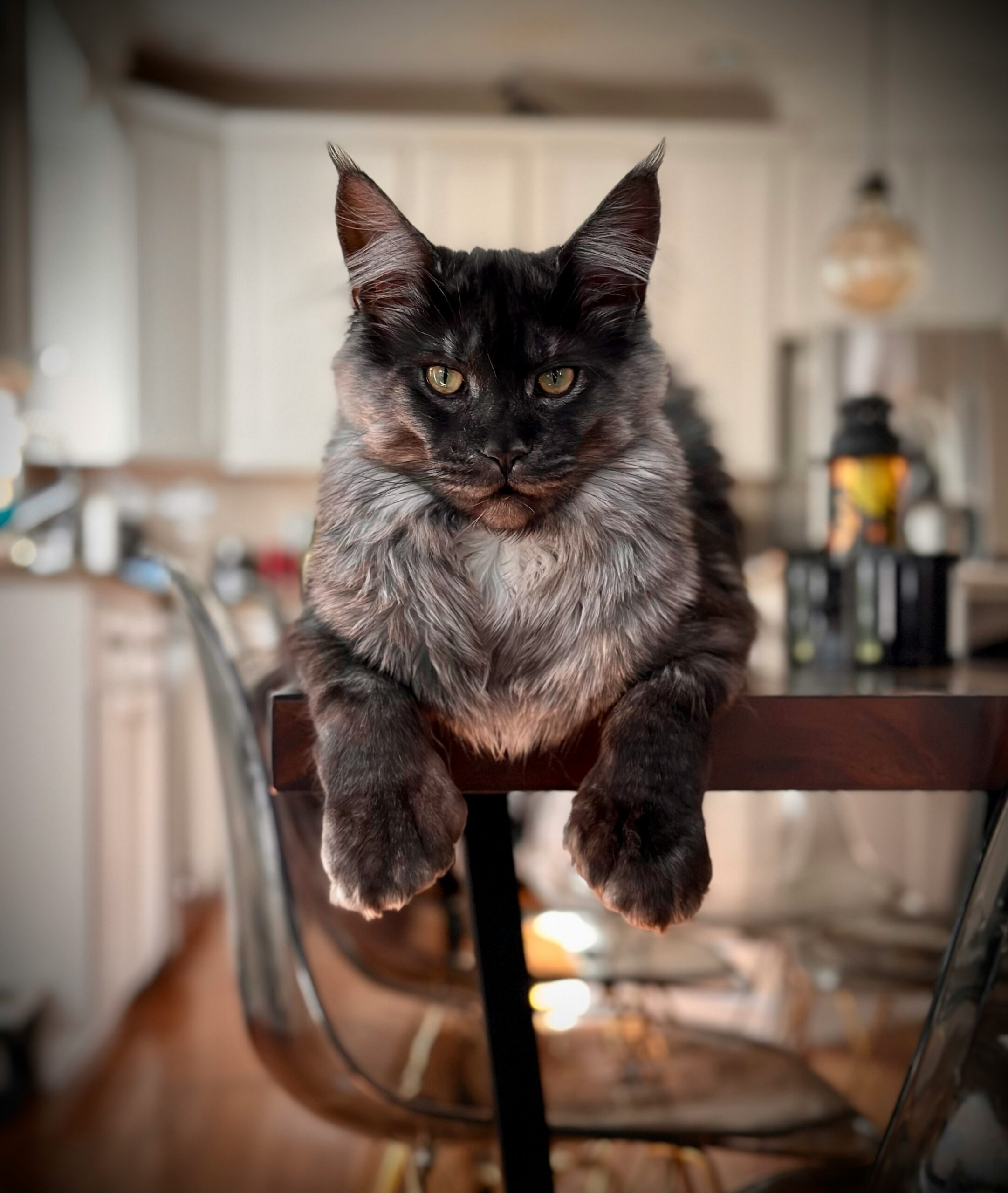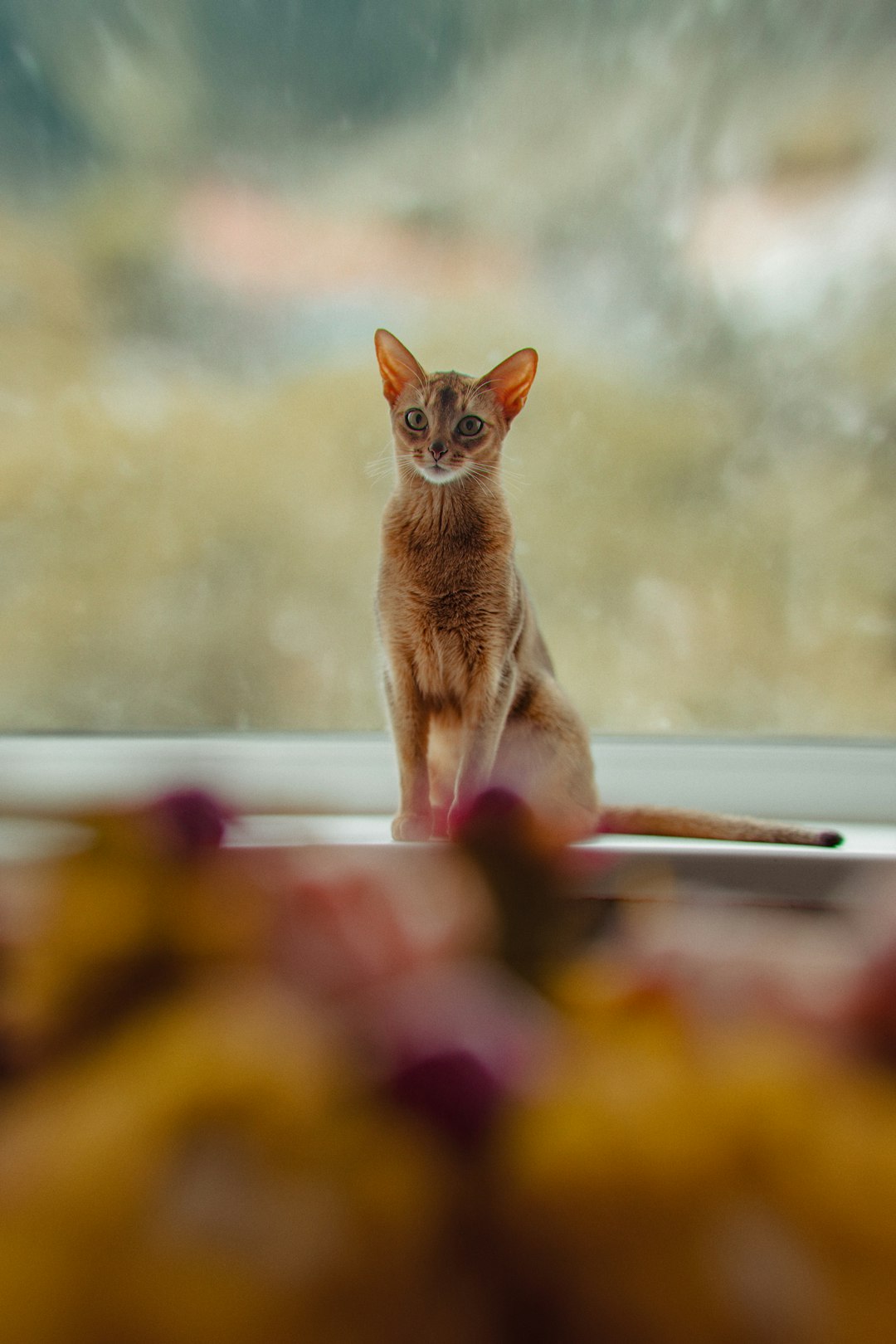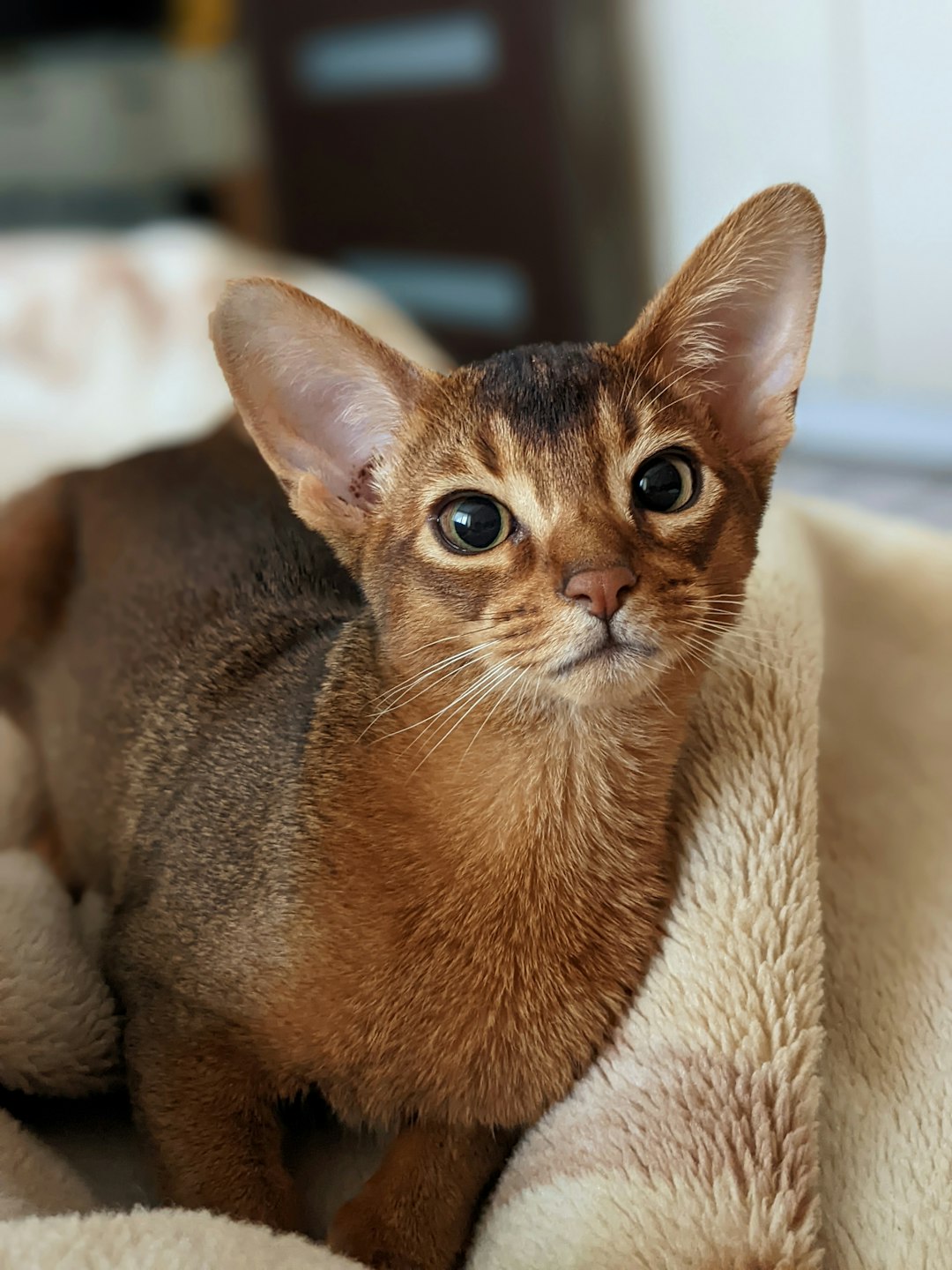If you’ve ever encountered a Maine Coon cat, you might have noticed that they come with a side of charm as vast as their impressive size. Known as the gentle giants of the feline world, these fluffy companions not only boast majestic manes and tufted ears but also a personality that could warm even the coldest of hearts. Replete with rich history and a playful spirit, the main coon cat captures the essence of friendship and fun. So, buckle up as we dive deeper into the fascinating world of these magnificent furballs!
Overview of Maine Coon Cats
Ah, the majestic Maine Coon cat! Known as the gentle giants of the feline kingdom, these furry friends take “big” to a whole new level. Standing proud with their tufted ears and bushy tails, they are a sight to behold.
Here’s what makes the Maine Coon cat special:
- Size: These cats can weigh anywhere from 10 to 25 pounds, making them one of the largest domesticated cat breeds.
- Appearance: Fluffy coats come in a rainbow of colors, and their striking eyes can be green, gold, or copper.
- Personality: Don’t let their size intimidate you! They possess a mellow temperament and enjoy human company.
Let’s not forget, these felines shine in both looks and personality. With their dog-like loyalty, they make excellent companions, proving that size really does matter when it comes to love. So, if you’re looking for a cuddly giant, the Maine Coon cat might just be your perfect match!
Physical Characteristics of Maine Coons
When you first encounter a Maine Coon cat, it’s hard not to be awestruck by their appearance. These feline titans are the giants of the cat world, boasting some truly remarkable physical features. Here’s what sets them apart:
- Size: Maine Coons are the heavyweights in the cat arena. They can weigh between 10 to 25 pounds (4.5 to 11.3 kg) and measure up to 40 inches (including tail) in length!
- Fur: Their luscious, water-repellent fur keeps them cozy in cold weather. Expect to see distinctive tufts on their ears and a bushy tail that resembles a feather duster.
- Eyes: Those mesmerizing eyes come in shades of gold or green, often perfectly accentuating their majestic look.
| Feature | Description |
|---|---|
| Size | 10-25 pounds (4.5-11.3 kg) |
| Fur | Long, shaggy, water-resistant |
| Tail | Long and bushy, acts like a blanket in winter |
| Ears | Large, tufted tips |
In short, the Maine Coon cat is not just a pet; it’s a fluffy marvel that turns heads and warms hearts.
Temperament and Personality Traits
When it comes to Maine Coon cats, their personalities might just steal the show. Forget the stereotype of aloof felines; these gentle giants are known for their friendly and affectionate demeanor. If you’re considering adopting a Maine Coon cat, here’s what to expect:
- Social Butterflies: Maine Coons crave companionship. They enjoy being around people and often follow their humans from room to room, like furry little shadows.
- Playful Millennials: Despite their size, Maine Coons have a kitten-like playfulness that lasts into their adult years. Interactive toys and games keep them engaged and entertained.
- Laid-back Loungers: These cats embody a relaxed attitude. They adapt well to indoor life, casually surveying their kingdom, and can often be found lounging in sunbeams.
- Vocalizers Extraordinaire: Maine Coons communicate with quirky chirps and trills. You might find yourself having delightful conversations with your feline friend.
In summary, if you desire a pet with a personality as big as their fluff, the Maine Coon cat should definitely be on your radar!
History and Origin of Maine Coons
The Maine Coon cat boasts a rich history that intertwines with the culture of New England. Legends abound regarding how these majestic felines came to be, but here are some intriguing highlights:
- Folk Tales: Some believe Maine Coons descended from long-haired cats brought to America by Vikings. Others say they are the result of domestic cats breeding with raccoons, inspired by their bushy tails. Spoiler alert: Raccoon-cat hybrids are merely a myth!
- Farm Essentials: With their robust size and affectionate nature, these cats became popular on farms, skillfully controlling rodent populations and charming everyone with their playful antics.
- State Pride: Officially recognized as Maine’s state cat in the 1980s, the Maine Coon cat symbolizes the region’s pride and connection to agriculture.
In essence, Maine Coons have solidified their place not only in homes but in history. Their unique blend of strength and gentleness continues to attract admirers, making them timeless companions. So, if you’re pondering the origins of that gentle giant curled up on your couch, now you know!
Grooming and Care for Maine Coons
Taking care of your Maine Coon cat can sometimes feel like you’re tending to a lion in your living room! But fear not; with a bit of love and a few grooming tools, you can keep your gentle giant looking fabulous. Here’s a whimsical rundown on grooming and care for your Maine Coon cat:
- Brushing: Aim for at least two to three times a week to tackle those flowing locks. Their luscious fur deserves some pampering to avoid tangles and matting.
- Bathing: Unlike most cats, Maine Coons often enjoy water. A bath every few months (or when they can no longer tell the difference between feline and feline-at-the-beach) will keep their coat fresh.
- Nail Trimming: Regularly check their claws – those mighty paws need a good trim every few weeks to prevent accidental furniture destruction.
- Ear and Eye Care: Keep an eye (pun intended) on ear wax and tear stains. Use a damp cloth for a quick clean-up.
In essence, grooming your Maine Coon cat isn’t just a chore – it’s a chance for bonding. So, grab that brush, and make your giant feline feel like royalty!
Diet and Nutrition Requirements
A well-fed Maine Coon cat requires a diet that matches its size—and eats like the gentle giant it is! Let’s dive into what keeps this majestic feline purring in delight:
- Quality Ingredients: High-protein cat food is crucial. Look for brands with real meat as the first ingredient. Your main coon cat deserves the best!
- Balanced Diet: Include a mix of dry kibble and wet food. This combo helps with hydration and keeps their coat shiny.
- Portion Control: Maine Coons are prone to obesity. Use this simple guide to portion sizes:
- Adult Maine Coons: 1 to 1.5 cups of dry food daily, split into two meals.
- Kittens: Provide free access to food as they are in their growth spurts.
- Supplement Smartly: Adding a few treats is fine, but stay away from fishy snacks. Too many can upset their tummy.
Remember, your main coon cat’s diet helps shape their health and merriment, so be the gourmet chef they didn’t know they needed!
Training and Socialization Tips
When it comes to the Maine Coon cat, training might seem daunting, but don’t fret! These gentle giants are surprisingly intelligent and eager to please. Here are some purr-fect tips to ensure your Maine Coon thrives socially and behaves well:
- Start Early: Begin training and socialization while your Maine Coon is still a kitten. Early experiences help shape their personality.
- Positive Reinforcement: Reward good behavior with treats, praise, or playtime. Negative methods may backfire with this sensitive breed.
- Consistency is Key: Use the same commands and gestures consistently. A Maine Coon cat appreciates a clear and predictable approach.
- Playtime Training: Incorporate training into fun activities. Use interactive toys to teach commands while keeping things playful.
- Expose to Various Environments: Gently introduce your Maine Coon to different people, pets, and surroundings to build confidence and reduce anxiety.
By following these tips, you’ll create a well-adjusted and sociable Maine Coon cat who’s ready to dazzle everyone with their charm!
Living with a Maine Coon Cat
Welcoming a Maine Coon cat into your home is like inviting a playful giant into your life—one that struts around with unmatched charm and fluffy majesty. But, of course, living with these gentle giants comes with some delightful nuances!
Here’s what to expect:
- Space Gourmands: Maine Coons thrive in spacious environments. If you live in a small apartment, consider investing in climbing trees and cozy nooks.
- Affectionate Shadows: Expect your Maine Coon cat to follow you from room to room, offering a sweet companionship that’s hard to beat.
- Vocal Chatterboxes: These cats love to “talk.” You may find yourself engaged in some enchanting conversations, complete with chirps and trills.
- Master Playwrights: Maine Coons boast a playful spirit. Have lots of toys and engage in regular playtime to keep this vigorous furball happy!
Why Choose a Maine Coon?
- Family-Friendly: They get along great with kids and other pets.
- Low Maintenance: Their grooming needs are manageable, thanks to their robust fur.
- Entertaining Personalities: You’ll never tire of their funny antics or gentle nature.
So, if you’re ready for a furry friend who knows how to make life exciting, the main coon cat might just be your purr-fect match!
Living with a Maine Coon Cat
Welcoming a Maine Coon cat into your home is like inviting an oversized bundle of joy that comes with its own set of amusing quirks! Here’s what it’s really like living with these gentle giants:
- Affectionate Companions: Maine Coons thrive on human interaction. They’ll often follow you around, participate in family activities, and even curl up in your lap.
- Playful Nature: With their playful spirit, Maine Coons enjoy interactive toys. They’ll delight in fetching balls and pouncing on feather wands, keeping you entertained.
- Social Butterflies: These cats get along well with other pets! If you have dogs or other felines, a Maine Coon will likely blend perfectly into your furry family.
- Intelligent and Curious: Their smarts mean they enjoy puzzles and brain teasers, so don’t be surprised if your main coon cat tries to “help” you with the laundry!
- Gentle Giants: Despite their size, Maine Coons are known for their soft, gentle demeanor. They’ll snuggle up next to you, making them perfect lap cats!
In short, living with a Maine Coon cat means endless affection, laughter, and playful moments. Who wouldn’t want a furry friend like that?
Why Choose a Maine Coon as a Pet?
What’s not to love about the Maine Coon cat? With their striking looks and charming personalities, these gentle giants are the dream companions for many. Let’s break down the pawsitive reasons why you should invite a Maine Coon into your home:
- Affectionate Nature: Maine Coons are known for their loving demeanor. They often follow their humans around like loyal shadows.
- Playfulness: These cats retain their playful spirit well into adulthood, always ready to engage in a game of chase or fetch.
- Intelligence: Maine Coons are intelligent and curious, making them a breeze to train. Who wouldn’t want a cat that knows how to play fetch?
- Low Maintenance Grooming: While their fur is luxuriously long, grooming is not a chore! Regular brushing helps reduce shedding and keeps their coat in top shape.
- Great with Families: They are gentle giants that get along well with children and other pets, making them perfect for family dynamics.
So, if you desire a loving, playful, and striking companion, look no further than the Maine Coon cat! It’s a purrfect addition to any home.
Frequently Asked Questions
Are Maine Coon cats really that big?
Absolutely! Maine Coons are the gentle giants of the feline world, with males often weighing between 13 to 18 pounds and females slightly smaller at 8 to 12 pounds. These fluffy furballs can reach impressive lengths, sometimes stretching up to 40 inches from the tip of their nose to the end of their tail! Their size combined with their tufted ears and bushy tails gives them an extraordinary appearance that turns heads, and hearts, of cat lovers everywhere!
Do Maine Coons get along well with other pets?
You bet your whiskers they do! Maine Coons are known for their friendly and sociable nature, making them an ideal choice for a multi-pet household. This breed is often gentle and tolerant, often treating smaller animals like a benevolent giant. Whether it’s a dog or a hamster, Maine Coons generally take it upon themselves to befriend their companions, smoothly blending into the family dynamic like purr-fect little ambassadors!
How much grooming do Maine Coons require?
Maine Coons do come with a majestic mane, which means they need a bit of grooming to keep that glorious coat from turning into a tangled mess. Regular brushing—about 2 to 3 times a week—is recommended to keep those luscious locks manageable and to reduce shedding. Plus, it’s an excellent bonding activity! So grab that brush and turn your gentle giant into a shiny, well-groomed superstar of the feline world!
Are Maine Coons known to have any health issues?
Like any breed, Maine Coons can be prone to a few health issues, but fear not! Regular vet check-ups can help nip potential problems in the bud. They can be susceptible to hypertrophic cardiomyopathy (HCM), a common heart condition in cats. Additionally, they might face hip dysplasia, given their size. But with love, care, and attention, these fur-endowed creatures can live long, happy lives—often reaching 12 to 15 years or more!



